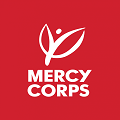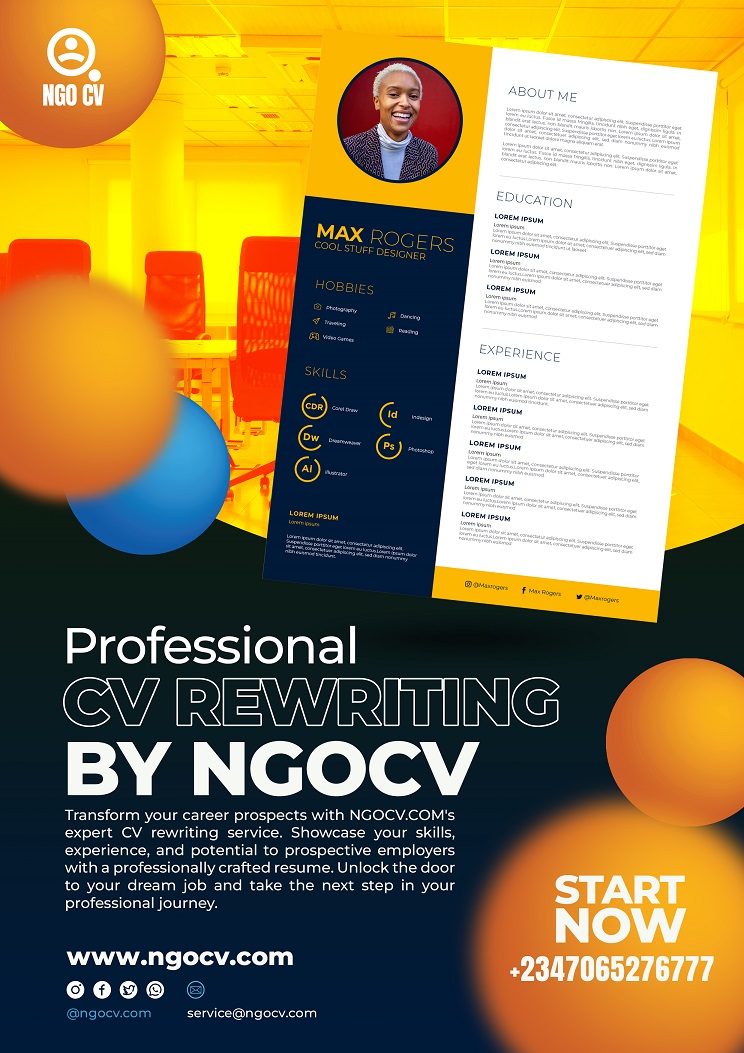
Mercy Corps is a leading global organization powered by the belief that a better world is possible. In disaster, in hardship, in more than 40 countries around the world, we collaborate to put bold solutions into action, helping people triumph over adversity and build stronger communities from within. Now, and for the future. In Nigeria, Mercy Corps has worked since 2012 by focusing its programming on adolescent girls’ empowerment, economic development, community asset construction and rehabilitation, agricultural development, conflict mitigation and humanitarian response.
We are recruiting to fill the position below:
Job Title: Engagement of Consultant for COMITAS Social Cohesion, Value Chain, and Market Assessment in Demsa, Girie, Lamurde, Mayobelwa and Numan LGAS – Adamawa State
Locations: Demsa, Girei, Numan, Lamurde and Mayo-Belwa LGA – Adamawa,
Employment Type: Contract
Background
- Mercy Corps has been present in Nigeria since 2012, focusing its interventions on humanitarian assistance, economic development, and conflict mitigation. With the ongoing insurgency, and other forms of identity-related conflicts, causing the displacement of thousands of individuals and communities in North-East Nigeria, Mercy Corps started its humanitarian response in the region in 2014 to address rising humanitarian needs.
- As the crisis persists, Mercy Corps’ strategy has also expanded to address the root causes of the conflict and seek to build the long-term resilience of communities with integrated programs that focus on governance, the recovery of markets and livelihoods, improving social cohesion and protection, youth empowerment, and enhancing local conflict management.
Project Description
- In order to contribute to the mitigation of shared natural resource conflicts, the International Organization for Migration (IOM), Search for Common Ground (Search), and Mercy Corps have designed the COMITAS program as a comprehensive and integrated approach to respond to conflicts over natural resources between farmer and herder communities in Adamawa State, Nigeria. The European Union’s (EU) Instrument contributing to Stability and Peace (IcSP) that responds quickly and flexibly to conflicts and crises funds the 18-month program.
This project has four specific objectives:
- Strengthen traditional conflict resolution in the targeted locations in Adamawa state to support conflict prevention and mitigation efforts.
- Improve trust in authorities’ commitment to providing security and adequate resource management to help prevent communities from turning towards violence.
- Address the root causes of conflict between farmer and herder communities over natural resources and;
- Improve intra- and intercommunal perceptions.
Purpose and Goal
- For Mercy Corps’ COMITAS program, this study seeks to explore valuable economic opportunities – market systems and chains and other economic connectors – that exist to strengthen conflict mitigation efforts, improve livelihoods, natural resource management and social interactions between farmer and herder communities and other social groups in Adamawa State.
- The key focus of the study will be on the critical value chains to better understand market weaknesses that could be both a source and a consequence of conflict between farmer and herder communities.
- The assessment will also integrate critical considerations such as gender sensitivity, conflict patterns related to natural resource management, access and use, agro-enterprises, climate change and resiliency, conflict sensitivity and economic recovery challenges.
- Also, as an essential part of the study, this assessment will identify concrete and plausible economic alternatives that will favor crop and livestock production, and other agricultural inputs, financial service sectors and market components that rural community groups can explore to alleviate poverty and complement existing agricultural value chains.
- The assessment will also identify critical supporting functions and rules and norms that help shape the performance of markets while inherently addressing some of the underlying constraints associated with natural resource management and resource-based conflict mitigation in Adamawa State.
- This study will develop the evidence base to stimulate accessible, inclusive, and resilient market systems that recognize the challenges and complexity of the farmer-herder conflicts in Adamawa State, and identify diverse pathways to support individuals, households and communities engaged in agricultural production out of chronic impoverishment.
- Also, the study will focus on reducing barriers for market participation or inclusion for households, individuals, and communities in Adamawa to address agricultural productions and incomes while bolstering alternatives to natural resources usage and having the capacity to diffuse conflicts.
- This assessment will be evidence-based and will draw on any existing market practices and models that have proven to be effective in advancing natural resource outputs in Adamawa State.
- The end-product of this assessment will promote systemic changes in market systems, remove the barriers to market entry for farmer and herder populations, and facilitate widespread adoption of microenterprise group models that are relevant to farming and herding to boost agricultural productivity and quality.
In terms of specific objectives for this assessment, the consultancy will:
Cause and effects- Literature reviews and in-depth interviews:
- Identify socio-economic environment in Adamawa State, taking into consideration some of the local causes and drivers of shared natural resource conflicts (immediate/proximate/cyclical/historical factors) in farmer and herder communities, along with the interconnections between market systems development and social cohesion drivers.
- Assess the challenges faced by farmer and herder communities (and its members, i.e. women/men and youth), that hinder their participation in resource-based and market systems?
- Analyze the impact of internal and external factors (including geo-politics, sociocultural dynamics, climate change, and forced displacement) on shared natural resource conflicts and value chains.Assess market weaknesses that could be both a source and a consequence of conflict between farmer and herder communities
Social Cohesion:
- Assess the structural issues around the sharing and management of natural resource in the community (conflicts and other extra-trade tensions that are related to broader structural issues, including natural resource policies and the attitudes and behaviors).
- Assess the factors for escalation/ reduce resource-based conflicts, especially between farmer and herder communities.
- Assess the local potentials that promote growth and social inclusion of communities in decision making and sharing of Natural resources.
Actors Mapping and opportunities:
- Identify value chain actors/networks that allow users easy and sustained access to key local and state-levelactors including off takers/aggregators, input suppliers, and others, even in the face of conflict and other stresses. Analyze the interplay of actors between these different structures and systems at the different levels (local community, state and beyond), identifying the interests of the identified actors to sustain – market practices that address poverty, prolonged natural resource conflict dynamics, and support economic frameworks that foster market cooperation among diverse parties [in]directly associated with or affected by resource-based conflicts.
- Identify opportunities for the struggles over market power, access and space that occurs along commodity chains and particularly contribute to the escalation of resource-based conflicts.
- Identify the coping and mediation mechanisms used by market actors and communities to manage these struggles in ways that prevent escalation, including recent changes in their availability and efficac
Projects Connectors: Review existing agricultural market models to identify their effectiveness, the gaps in their operations and how their adaptation will address poverty and improve positive interactions and social cohesion across communities:
- Analyze the natural resource institutional capacities that exist to support access to effective value chains and functional markets, especially those that are inclusive and consider the intersectional capabilities of diverse men, women and youth groups involved in farming and herding activities.
- Identify the diverse social structures that guarantee adequate social inclusion, particularly facilitating women’s economic empowerment opportunities within agricultural production and natural resource market systems.
- Assess stresses, shocks and/or stressors that influence natural resource management, agricultural production, and economic recovery for poor populations (at individual/household/market/macro levels).
- Identify the impact of environmental depletion and climate change, infrastructural damage, disruption of legitimate market networks, and limited market scope on various value chains.
- Identify diverse leverage points within value chains, addressing some of the gaps that affect functional markets that different groups, particularly farmer and herder communities, can access and engage with various users [in]directly.
- Highlight the power imbalances that exist or often result from the structure of these leverage points, such as factors that prevent crop or animal producers from interacting directly with end-buyers.
- Identify the quality and type of agricultural products that diverse end-market users demand, and the requirements and risks associated with meeting these demands.
- Identify the opportunities/mechanisms available for farmers and herders and other socioeconomic groups to improve agricultural production and raise personal and household income.
Sustainability – Linkages and synergie:
- Identify areas of connections and sequencing/layeringlivelihoods strategies and interventions with other types of peacebuilding, governance, and NRM interventions that COMITAS (and other programs more broadly). if evidence is available, the recommendations should consider how the strategies focused on supporting the livelihoods and market access, should also layer and sequence with other interventions focused on natural resource management, peace building and good governance, including but not limited to interest-based negotiation, dialogues and joint projects, participatory planning and advocacy trainings and trauma healing.
Research Questions
The following questions will guide this study:
- What are the connections between socio -economic conditions on the resource based conflicts to the market systems and social cohesion in Adamawa state?
- Establish what has already been done and where are the gaps exist for the intervention’s measures?
- What existing value chains facilitate robust agricultural production, market access and improved livelihoods and economic recovery for diverse rural and urban populations
- To what extent and through what mechanisms do existing value chains, and market networks do or do not influence resource-based conflicts in Adamawa?
- Existing market strategies and practices are adopted to ameliorate livelihoods, ensure natural resource access, and strengthen social cohesion in farmer and herder communities through collaborative market engagements in Adamawa State?
- What are the likely linkages of climate change, conflict and livelihoods impacts in Adamawa State?
- Make recommendations after establishing facts on the ground to both state and non-state actors, including both local and of cross border nature.
Geographic Coverage of the Study:
- This assessment will cover at least 10 Local Government Areas of Adamawa State.
Approach and Methodology
- For this assessment, the method of engagement will be consultative and grounded on the principles of participation.
- The consultant will clearly state the proposed research methodology, detailing how this study will be operationalized across all the research sites in Adamawa State.
- The consultant will make recommendations on who will be the target research respondents, offer justifications for their selection, and explain how they will be identified and engaged.
- Also, s/he will elaborate on the process of data collection, highlighting how data quality and research ethics will be guaranteed, including principles of Do No Harm, and how the data collected from research participants will be analyzed.
The proposed methodology for this assessment should incorporate:
- Conflict Analysis presenting a structured mapping of the conflict drivers and root causes in Adamawa State, along with the relationships between these factors. This analysis should present a micro and macro environment analysis of the geo-politics, sociocultural dynamics and climate change factors influencing natural resource conflicts and value chains in Adamawa state, and can either draw on existing conflict analyses and secondary literature on Adamawa State, or on new data collection.
- A structured mapping of the agricultural market system in Adamawa State, including the core transactions and key supporting functions that are relevant to agricultural production and enable effective value chains, the rules or norms governing the system, and other factors that drive social cohesion and resilience within market systems at the local, state and regional levels. Also, the structured map will demonstrate the potentials for agricultural value chains to address or deescalate resource-based conflicts, improve social cohesion, facilitate economic benefits for farmer and herder groups, and increase growth.
- Representative qualitative and quantitative surveys of different actors, networks and institutions that have influence on transactional patterns, market practices, social cohesion, and/or conflict dynamics, taking into account some of the sensitivities associated with socioeconomic interactions across farmer and herder groups.
- Desk review: Conduct extensive review of diverse resources on market systems, social cohesion, , natural resource conflicts and humanitarian context in Adamawa State to identify and understand existing data and triangulate this information to demonstrate the intersection of resource-based conflicts, value chains/market systems, and social cohesion. This desktop review will also examine existing market practices, the COMITAS program framework, local economic laws, policies and strategies and sectoral guidance and toolkits for operationalizing effective economic recovery programs. The review will include existing market systems assessments and other reporting conducted by Feed the Future’s Rural Resilience Activity implemented by Mercy Corps in Adamawa since Fall 2019, and any recent conflict analyses and/or political economy analyses conducted in Mercy Corps or its partners in Adamawa, including the Clash of Contagions report on COVID-19 and conflict .
- Focus Group Discussions: Describes the modalities for organizing and facilitating structured discussions with identified research participants. The consultant will determine the number of FGDs and participants, respectively, to effectively measure various perceptions on the nexus between natural resource conflicts, economic value chains and the broader market system in Adamawa State.
- Key Informant Interviews: Involves semi-structured interviews to be conducted with ordinary community women and men, youths, farmers, herders, market and business sector leaders/networks engaged in agricultural production, government officials and line ministries, humanitarian workers, etc.
- Other relevant data collection approaches and tools that will be administered for the assessment by the consultant. The consultant and Mercy Corps’ COMITAS and technical teams will review these data collection processes and tools collaboratively to ensure quality and the incorporation of vital conflict sensitivity components.
- Procedure for ensuring gender-sensitivity and social inclusion (mainly for youth, persons living with disabilities and other marginalized groups) in tools design, data collection, and the entire research.
- Do-No-Harm principles: Informed consent should be obtained from all research participants including secondary consent for participants below 18years of age. Appropriate local authority permissions should also be obtained prior to commencement of the data collection. The data collection process should be inclusive and participatory, ensuring that from the team composition to how research participants are engaged, there is adequate representation across gender, ethnic, religious and livelihoods groups. Consultative groups should be gender and age specific, as appropriate.
- Compliance with national and state-level COVID-19 protocols: Primary data collection must be well-organized and undertaken in a manner that aligns with the safety and health protocols provided by the Nigeria Centre for Disease Control (NCDC), State and Federal Ministries of Health, and Mercy Corps.
Evaluation Findings Primary Users
The primary intended users and uses of the evaluation’s findings are as summarized below.
- EU as the main funder of the COMITAS Program – We hope that the Social Cohesion, Value Chain, and Market evaluation findings will be used to decide if and how to capitalize on the opportunity to build synergies and market-based solutions that address systemic barriers and natural resource trends linked to conflict and insecurity and further support natural resource interventions in Nigeria.
- Mercy Corps Nigeria and the Consortium Partners (IOM and SFCG) – We hope that the findings will be relevant to guide in development of a livelihood strategy that identifies both short and medium-term interventions to strengthen farmer and herder communities’ access to markets in an inclusive, gender and conflict-sensitive manner.
- The broader international organization – for international organizations implementing such programs in Nigeria, we hope that the findings will be useful to assess their role in designing and implementing similar programs.
- In addition, we hope that the evaluation findings will not only be critical to meet the above highlighted purpose, but also serve as a learning experience, where the process of generating answers to the proposed evaluation questions will provide MC and the consortium members with new understanding on the Social Cohesion, Value Chain, and Market system Development.
Implementation Strategy and Evaluation Work Plan
- Mercy Corps will provide technical support in the refinement of the evaluation methodology and in the case of data collection tools, inputs, and all supporting documents to guide design and finalization of the evaluation methodology and data collection instruments.
- Mercy Corps has a pool of enumerators ready to be engaged should need arise, hence consultants should not budget for enumerators. Below is an overview of the activities, their duration, and the stakeholders responsible during the evaluation process. The duration/level of effort included is tentative to be finalized once the evaluation team have been identified.
| Activities | No. of days | Person Responsible |
| Desk review. Entry and Inception – Review the learning evaluation SOW with the External Evaluators to clarify timeframe, assignment objectives and available budget | 1 | MC |
| Agree on assessment tools, time schedules, and delivery period for data collection activities. | ||
| Submission of inception report, tools, analysis Plan and dissemination/publication plan | 2 | Consultant |
| Review and sign off on inception report | 2 | Mercy Corps |
| Translate assessment tools as needed | 2 | Consultant |
| Submits complete draft of the DATA ANALYSIS PLAN (DAP) to Mercy Corps’ POC (a complete draft includes dummy tables, placeholders for charts/graphs/images, description of how data triangulation/synthesis will be conducted, how qualitative data will be analyzed, etc.) | 1 | Consultant |
| Reviews DAP and consolidates feedback returning this to consultant/firm | 2 | Mercy Corps |
| Submits FINAL DAP to Mercy Corps having addressed consolidated all feedback | 1 | Consultant |
| Initiate and conduct comprehensive data collection (Training of enumerators, Pilot of tools, Review and sign off of tools, Data collection, Submission on Clean and Raw Data set) | 12 | Consultant |
| Encode and analyses data collected | 4 | Consultant |
| Data analysis and submission of first draft Research Paper | 1 | Consultant |
| Review of analysis and first draft research paper | 1 | Consultant |
| Hold a virtual feedback/validation workshop with key Mercy Corps key staff to present the reviewed findings and collate final feedback | 1 | Mercy Corps |
| Revision and submission of the final research paper and Factsheet, produce a presentation of findings, and update key program docs and share back with MC (not more than 20 pages – all other additions can be included as annexes). | 1 | Consultant |
| Dissemination workshop | 1 | Mercy Corps/Consultant |
| Data sets, code books, syntax, etc are delivered to Mercy Corps COMITAS MEL Team | 1 | Consultant |
| Total number of days: | 33 Days(27 working days for consultant) |
Proposed Assessment Report Structure & Content
In line with Mercy Corps Branding guidelines and templates, the following is proposed for the evaluation deliverable documents:
- Cover Page
- List of Acronyms
- Table of Contents
- Executive Summary: This section should be a clear and concise stand-alone document that gives readers the essential contents of the assessment report, including a summary of major constraints, opportunities, and recommendations.
- Methodology: This section should be sufficiently detailed to clarify the assessment methodology as aligned to the accuracy of the report and its findings. This section should address constraints and limitations of the methodology, and the implications of these limitations for the findings, including whether and why any of the assessment findings are inconclusive.
- Results: This section should provide clear assessment findings. Reference should be made to any assessment/evaluation information as well as existing literature etc.
- Synthesis, Recommendations and Lessons Learned: This is space for the evaluation team to think about the data and results and make concrete recommendations for current or future programme design and improvements, and generally comment on data and results. Everything presented in this section should be directly linked back to the information presented in the Results section of the report
- Conflicts of Interest: Disclose any conflicts of interest or the appearance of conflicts of interest, including the interest of programme staff in having a successful programme.
- Annexes: These should include a complete file of data collection instruments in English and translations to Hausa (if applicable); list of stakeholder groups with number and type of interactions; SOW, qualitative and quantitative protocols developed and used, any data sets (these can be provided in electronic format), any required photos/consent forms, participant profiles or other special documentation needed.
The evaluator (consulting firm) is expected to deliver a comprehensive, professional quality final assessment report. The assessment report should be soft copy (PDF and Word – submitted electronically) along with the Data Analysis Plan and the data set. The page limit for the full report must not exceed 20 pages (exclusive of annexes and attachments).
The following are the key deliverables aligned to the deadlines and payment terms:
| Deliverables /Milestones | Payment Percentage | Payment Terms |
| Engagement and signing of contract and received of inception report | 30% | Initial Invoice |
| Progress Draft report with preliminary findings and analysis. | 30% | Second invoice |
| Final Assessment report with key findings and recommendations and updated program documents | 40% | Final invoice |
Consultant Deliverables
- Ensure timely delivery of the assigned tasks
- Consultations targeting Key Institutions, Local governments, Community Groups and Key Informant Interviews
- Oversee data-collection with all involved stakeholders and program teams in all the assessment locations.
- Train enumerators for field data collection activities.
- Share all data collected as part of the deliverables
- Draft Report for inputs.
- Stakeholders Virtual Workshop to present findings of the consultancy
- Final report:
- Short version for quick reading (Max 10 pages) and;
- Full report
Mercy Corps’ Support:
To ensure adequate support towards accomplishment of the above-mentioned tasks, Mercy Corps will:
- Provide input to all tool designs and any support necessary during the training and assessment.
- Make payments for the Consultancy services
- Cater for all in-country travels and accommodation logistics. Cost of all in-country travel and logistics including enumerators (if any) costs should not be included in the financial proposal. Travel is subject to Mercy Corps security clearance.
- Review/approve the draft and final reports.
- Ensure relevant program staff work with consultant as needed (Project Manager, Strategic Learning Manager and M&E team, etc.). The team will be available to work directly with the consultants throughout the consultancy and to answer any question as they emerge.
The Consultant(s) will report to:
- Mercy Corps Technical Support Unit (TSU), and the Program Manager, COMITAS
The Consultant(s) will work closely with:
- The COMITAS program team
Scoring Evaluation
Trade-Off Method:
- Mercy Corps Tender Committee will conduct a technical evaluation which will grade technical criteria on a weighted basis (each criterion is given a percentage, all together equaling 100%).
- The offeror’s proposals should consist of all required technical submittals so a Mercy Corps committee can thoroughly evaluate the technical criteria listed herein and assign points based on the strength of a technical submission.
- Award criteria shall be based on the proposal’s overall “value for money” (quality, cost, delivery time, etc.) while taking into consideration donor and internal requirements and regulations. Each criterion has been assigned a weighting before the release of this tender based on its importance to Mercy Corps in this process.
- Offeror(s) with the best score will be accepted as the winning offeror(s), assuming the price is deemed fair and reasonable.
- When performing the Scoring Evaluation, the Mercy Corps tender committee will assign points for each criterion based on the following scale:
| Point | Rationale |
| 0 | Not acceptable; has not met any part of the specified criteria |
| 1-4 | Has met only some minimum requirements and July not be acceptable |
| 5 | Acceptable |
| 6-9 | Acceptable; has met all requirements and exceeds some |
| 10 | Acceptable; has exceeded all requirements |
| Evaluation Criteria | Weight (%) | Possible Points (1 to 10) | Weighted Score |
| (A) | (B) | (A*B) | |
| Product/Service/Work Technical Specifications: A detailed concept note with a clear methodology for addressing evaluation questions and a budget. A strong ethical approach to data collection. Strong skills in survey form design for mobile data collection. Analytical skills and the ability to synthesize and present findings, draw practical conclusions, and make recommendations. Demonstrable data visualization skills. | 30% | ||
| Price/Cost: Quoted price is reasonable and justifiable value for money. | 20% | ||
| Resources: The lead consultant must hold a minimum of an advanced degree, preferably in economics. Both lead and co-lead must have a minimum experience of 4 years in leading evaluations for humanitarian/early recovery/resilience programmes. Lead and co-lead must be willing to travel to northeast Nigeria and conduct direct standard assessment activities as well as field visits to program sites. Fluency in English. | 20% | ||
| Corporate Capabilities: Experience with Nigeria’s humanitarian context. Experience carrying out evaluations in Nigeria. Experience with evaluating EU-funded projects. Having a presence in Nigeria is desirable. The Firm should have a minimum experience of 5 years in the evaluation industry. | 20% | ||
| Delivery Time: All deliverables must be met within the stipulated timelines | 10% | ||
| Total Possible Score | 100% |
Application Closing Date
2nd September, 2022.
How to Apply
Interested and qualified candidates should submit their Proposal to: [email protected] using the Job Title as the subject of the email.
Documents Comprising the Proposal
In addition to requirements specified in the MER – MSA applications process, interested evaluators (Consulting Firms) should submit the following documentation for the proposal:
- Cover letter and Proposal that includes Methodology, Approaches, and Key Institutions, Groups, and Key Informants to consult etc – Max 6 pages
- Technical and financial proposal for this assignment
- Proposed work plan and detailed budget including the role or roles of the consultants Include Professional Fees and modest costs associated with the work.
- Three references including contacts.
- CV proposed staff / team members noting identified roles and team lead:
- Either CV in case of individual applicant
- Or Organization profile. Also attach CV of the Consultant
- Previous work report
- Corporate Capacity statement (not to exceed 2 pages) detailing where they have worked, years of experience in the evaluation industry, office locations if any, and types of evaluation previously carried out.
Important Information
- Mercy Corps will evaluate Technical and detailed financial proposals to establish fit and award the assignment based on technical and financial feasibility.
- Mercy Corps reserves the right to accept or reject one or all proposals received without assigning any reason and is not bound to accept the lowest or the highest bidder.
- Only those shortlisted will be contacted.
- Subcontracting to other entities is not allowed and will not be accepted under this assignment.




